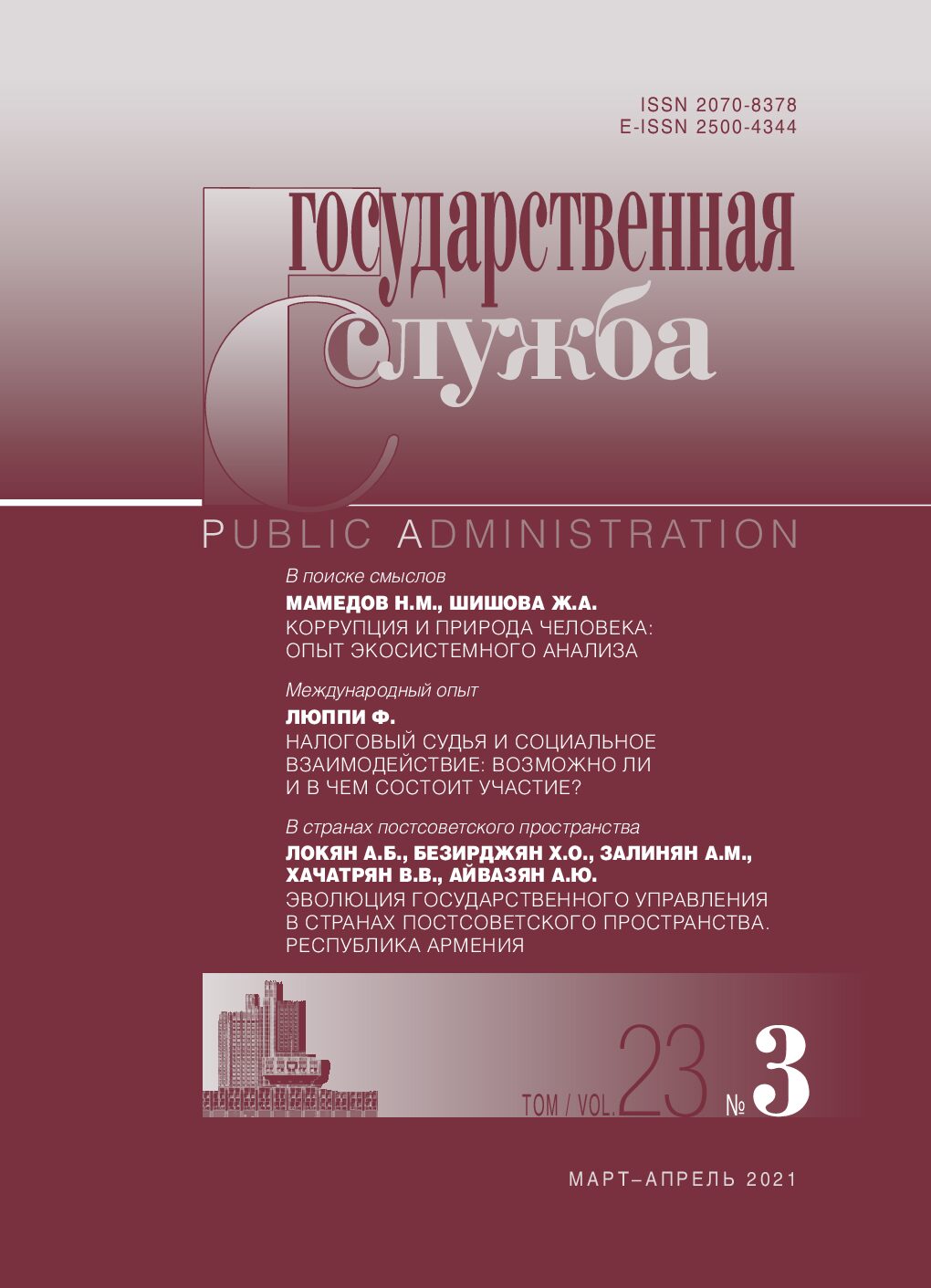Recommended link to article:
PHILIPPE LUPPIа
аCôte d’Azur University
DOI: 10.22394/2070-8378-2021-23-3-92-97
Abstract:
The article focuses on the role and place of a taxation judge in the French legal system. The author notes that the activity of a judge in tax disputes is not regulated by any special act; it is self-independent and, at the same time, ensures compliance with the general principles of private or public law. The taxation judge seeks a balance in the delicate relationship between the tax administration and the taxpayer, where the latter perceives the tax as a burden rather than civic duty, and sometimes tries to violate the rules and the law, forgetting that, as Oliver Holmes said, “Taxes are the price we pay for the opportunity to live in a civilized society”. Many taxation mechanisms are balancing on the verge of legality and get out of the control of a judge who does not always have sufficient information and resources. Despite the progress made in this area, taxation judges have not been able to determine the intangible boundary between taxation engineering (legal taxation optimization opportunities) and tax planning (morally reprehensible tax evasion). Through case law, the taxation judge takes part in restoring tax justice, the confidence in the tax administration, the preservation of rights and guarantees for the taxpayer, and the desire to promote and encourage tax residency as the basis of a social contract.
Keywords:
taxation judge, tax administration, tax fairness
Received:
December 24, 2020
References:
Bergeres M. C. Jurisprudential norms in tax law. Dr.Fisc. 2000. No. 13. Study 100109. In French
Bouvier M. Introduction to general tax law and tax theory. 14th ed. Paris: LGDJ, 2018. In French
Collet M. Tax law. 8th ed. Paris: PUF Thémis, 2020. In French
Guez J. Interpretation in tax law. Paris: LGDJ, Collection: Library of the André Tunc Institute, 2007. In French
Guez J. Should case law interpretation be specific in tax law? – The return to the principle of strict interpretation in tax law. L’année fiscale, 2004. In French
Grosclaude J., Marchessou P., Trescher B. General tax law. 12th ed. Paris: Dalloz, 2019. P. 49. In French
Halard C., Vu Tran C. The interpretation of ambiguous tax laws: in dubio centro fiscum. Dr.fisc. 2020. No. 18. Study 231. In French
Lignereux B. Constitutional tax law. Preface by Guillaume Goulard. Paris: LexisNexis, 2020. In French
Marchessou P. The interpretation of tax texts. Paris: Economica, 1980. In French
Marchessou P. Contemporary reflections on the interpretation of tax texts. Collection of Paul Amselek. Bruylant, 2005. In French
Philip L. Constitutional tax law: evolution of case law. Paris: Economica, 2014. In French
Philip P. Tax procedures and taxpayer guarantees. Paris: Economica, 2011. In French
Philip P. The principle of independence for procedures in tax issues. Dr.Fisc. 2004. No. 21. Study 23. In French
Saez E., Zucman G. The triumph of injustice: wealth, tax evasion and democracy. Paris: Seuil, Les livres du Nouveau Monde, 2020. In French
Trotabas L. The principle of a literal interpretation of tax laws. Collection in honor of François Geny, 1934. In French
Turot J. The freedom to run businesses between hell and heaven (and closer to hell). Dr.fisc. 2017. No. 27. Study 378. In French
Articles in Open Access mode are published under the Creative Commons Attribution 4.0 International (CC BY) license.

